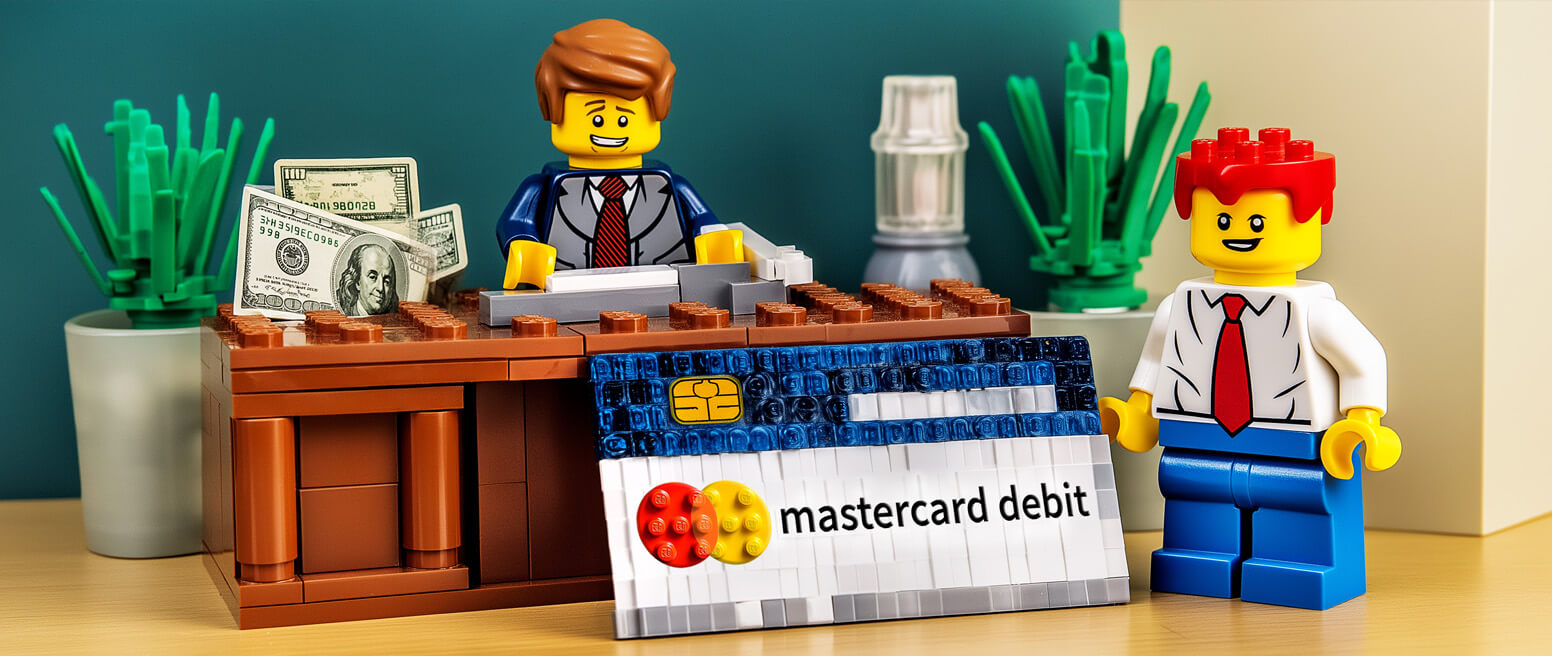What Makes Mastercard Debit Card Chargebacks Different From Credit Chargebacks?
When it comes to chargebacks, you’re on top of your game. You’ve set chargeback alerts, you use best practices to limit merchant error, and you follow the rules when it’s time to fight back. But, despite your efforts, you’re receiving chargebacks from Mastercard that don't seem to follow the same rules as the others.
Why?
A Mastercard debit card chargeback is similar, but not identical, to a traditional credit card chargeback. The differences between debit and credit cards impact the timeframe for chargebacks, the liability of each party, and more.
In this article, we’ll explain what Mastercard debit chargebacks are, how they differ from credit card chargebacks, and how to prevent them.
Recommended reading
- Mastercard Dispute Resolution: What You Need to Know
- Mastercard Chargeback Rules: Guidelines & Procedures
- Mastercard Chargeback Time Limits: The 2025 Guide
- Mastercom | What Is it? How Does Collaboration Work?
- What are Mastercard Chargeback Fees? The Rundown for 2025
- How Mastercard First-Party Will Fight Video Game Disputes
Mastercard Debit Chargebacks: What’s Different?
The Mastercard debit card chargeback and credit card chargeback processes work the same way, in a general sense.
In both cases, the cardholder disputes a claim made using their card. The bank then takes the funds back from your account in response. The primary difference between Mastercard debit card chargebacks and credit chargebacks comes down to the level of fraud protection mandated by law, rather than the card network rules.
Mastercard is the world’s second-largest card network, with 2.5 billion cards in circulation. Like other card networks, they have the right to set their own chargeback rules, reason codes, time limits, and more. In fact, the most recent version of the Mastercard Chargeback Guide comes in at more than 700 pages.
All that being said, there are laws that govern the protections to which credit and debit card users are entitled, as well.
Mastercard Fraud Liability: Credit vs. Debit Cards
Cardholders will bear some degree of liability for fraud. But, the legal protections offered are very different when we look at credit and debit card fraud liability side by side:
When a cardholder makes a purchase with a debit card, the funds used are debited from funds that exist in the cardholder’s account. Conversely, credit card transactions are made using the bank’s money.
A Mastercard debit card chargeback directly impacts how much money is available to the cardholder at a given moment. Credit card chargebacks, on the other hand, involve funds that must be paid back to the bank at some point, and will temporarily lower the cardholder’s credit limit.
This is an important distinction, as we’ll see in the next section.
Mastercard Debit Chargebacks: Is There An Opportunity?
The main differences between Mastercard debit card chargebacks and credit card chargebacks is the availability of the funds in question. In debit card transactions, funds are directly debited from the cardholder’s personal account, whereas credit card transactions involve funds on loan from a bank.
Banks may simply "write-off" losses resulting from fraud if the transaction is less than $25. The value is so low, they may not view it as worth the time and money that the chargeback process demands. They just eat the loss. In contrast, they might be more insistent on proceeding with a chargeback based on potential losses they might incur for higher-value purchases.
With legitimate disputes, cardholders will do whatever they believe will get their money back fastest. As we see above, though, there’s no guarantee that a cardholder will succeed with a Mastercard debit card chargeback. The merchant may challenge the dispute (a process called representment), and could recover the funds.
It’s better for everyone involved if the cardholder attempts to resolve matters directly with the merchant as an alternative to a Mastercard debit chargeback. To do that, though, you need to prioritize fraud prevention and customer service.
Preventing Mastercard Debit Card Chargebacks
No matter the network, debit card chargebacks are not going away. In fact, cardholders filed 615 million chargebacks in 2021. That number is not expected to stop or even slow down anytime soon.
To be proactive about this, here are some of our top tips to prevent Mastercard debit chargebacks:
Ask the Experts
Chargebacks of every size and stripe are going to happen, no matter what you do to prevent them. What’s worse, the rules and regulations for each type of chargeback vary wildly from network to network. This can make in-house chargeback management an extremely difficult and cost-prohibitive prospect.
Good news, though: help is available.
A free ROI analysis from Chargebacks911® can show you just how much more you can earn by taking control of chargebacks. You can take the first step today to reduce your chargeback risk, recoup lost profits, and keep your business safe from debit card chargebacks.
FAQs
Can you do a chargeback on a debit Mastercard?
Yes. If you made a purchase using your Mastercard debit card, you can contact the bank that issued your debit card to file a chargeback.
Can you chargeback with Mastercard?
Yes. You can reach out to your issuing bank to file a chargeback if you made a purchase using a Mastercard-branded debit or credit card. You can also initiate a chargeback if you made a purchase using a Visa-, American Express-, or Discover-branded debit or credit card.
Do chargebacks work for debit cards?
Yes, you can file a chargeback on purchases made with a debit card, just as you would with credit card transactions.
Why would you file a debit card chargeback?
You can file a debit card chargeback if you detect unauthorized activity on your debit card or if you purchased goods that were delayed, missing, or defective. You may also initiate a chargeback if the merchant you purchased goods or services from charged you the wrong amount, or if you requested a legitimate refund from the merchant but were denied one.
Is it hard to dispute a debit card charge?
It depends. If you have strong evidence that certain charges on your debit card occurred as a result of fraudulent activity, your dispute process may be straightforward. You’re also likely to win a dispute if you have proof that you received damaged goods, or if the goods you purchased were late or did not arrive. However, if you were simply unsatisfied with a purchase, or if you do not strong evidence to make a claim, it may be rejected, or challenged by the merchant.
















